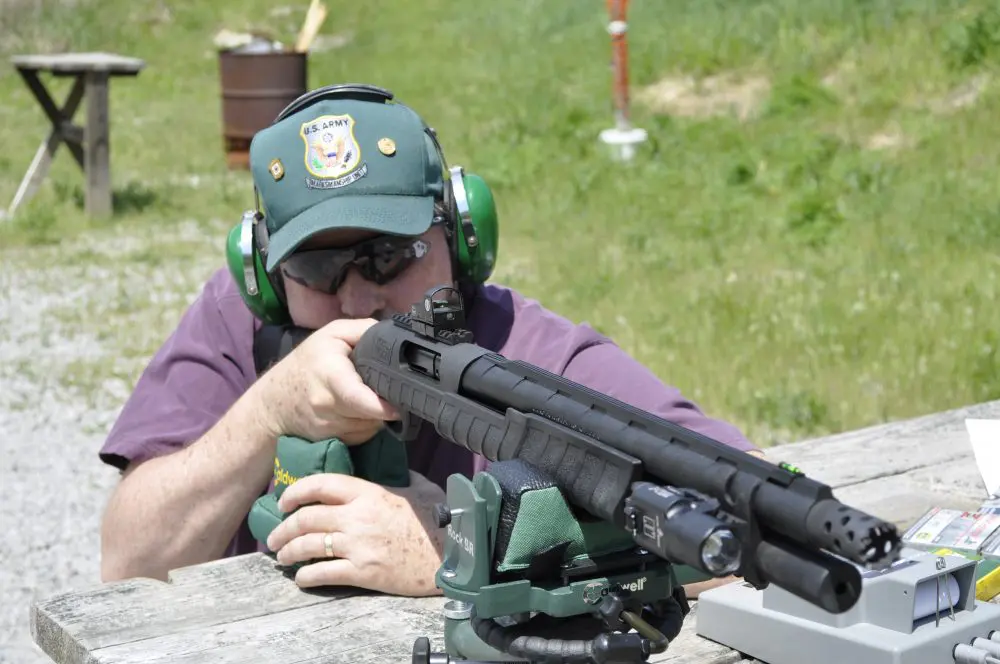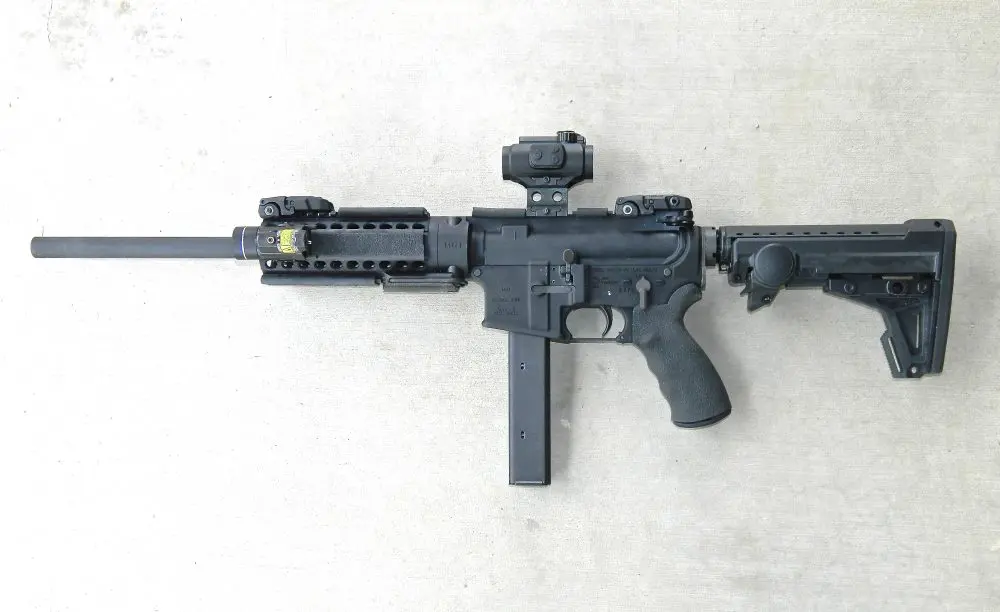Last month’s column made several not-too-complimentary references to “hired government muscle.” That may have raised a few eyebrows in a publication with a target audience with so much, well, “hired government muscle.”
As a former “muscle” myself, I should clarify my meaning, which was certainly not intended to cast aspersions on the professions of law enforcement or military service.
The men and women of the military and police play a vital role in safeguarding the lives and liberty of the people of this nation. The problem comes when the people giving the orders command them not to protect the people’s lives and liberty, but to destroy them.
When that happens, some in law enforcement and the military will be only too willing to obey. Those are the “oath-breaking hired muscle” from whom the people must have a credible means of defending themselves. The law enforcement and military personnel of honor will, on the other hand, continue to live up to their oath to preserve the Constitution.
That will not be easy. They will risk harsh disciplinary action, with demotion probably at or near the low end of the range of consequences, on up to ejection from the organization (and hence sudden unemployment), prison time or, not inconceivably, even death. But such risks come with the job, and anyone not willing to take them needs to be in a different line of work.
In other words, cops and soldiers must be oath keepers. That might mean actually becoming a member of the group that calls itself Oath Keepers, formed in 2009 by Yale-educated attorney and former paratrooper (and former S.W.A.T. columnist) Stewart Rhodes. The Oath Keepers are mostly active duty and retired military service members, law enforcement officers, and firefighters who reaffirm their service oath to uphold the Constitution, and clarify their intentions with a second oath to disobey any unconstitutional order. Orders to disarm the people appear right at the top of the list of examples.
But one need not formally join any group in order to honor one’s oath. Indeed, I strongly suspect that only a small percentage of those who would disobey unconstitutional orders have actually formalized that stance by joining the group.
For those who doubt that such orders will ever be given, it is instructive to note the volume and intensity of the vitriol directed at the Oath Keepers. The Southern Poverty Law Center, which claims to be a watchdog group keeping an eye on “hate groups,” has no fewer than ten articles about the Oath Keepers in its “Hate Watch” blog, despite the fact that the Oath Keepers have never espoused racism, religious intolerance, or any other form of “hate.” SPLC went so far as to voice a bit of disappointment that there seemed to be no grounds on which the Pentagon could prohibit personnel from joining the group.
The Coalition To Stop Gun Violence goes considerably further than SPLC, telling their Facebook followers that, “We’ve been calling them traitors for some time. And that’s what our Founding Fathers would have called them.” Traitors, for refusing to obey unconstitutional orders. Who could possibly find such a vow objectionable? The only rational answer is those who want unconstitutional orders to be obeyed, who want the government to have the power to use the men and women under its command as attack dogs against the American people.
These are people who have the ears of many powerful officials in government. The Obama Administration has more than once consulted with the SPLC on hate groups and domestic terrorist threats. If they want the government to be able to count on soldiers’ and cops’ willingness to defile their oath to uphold the Constitution, it’s hard to imagine that none in the government itself share that wish. Some day, they might try to make that wish reality.
And we have actually seen such orders given in the not-too-distant past. After Hurricane Katrina, then-Mayor of New Orleans Ray Nagin ordered the wholesale confiscation of privately owned firearms, with police and National Guard personnel expected to carry out that order. Unforgivably, they did just that.
Some have argued that it is not the place of individual soldiers (and by presumable extension, individual law enforcement officers) to decide whether or not their orders are unconstitutional. This begs the question of whose place is it? Their superiors? That’s where the orders are coming from in the first place.
No, as at Nuremberg after World War II, “just following orders” does not cut the mustard as an excuse to abuse the rights of the people. It is the sacred duty of every law enforcement officer and military service member to scrutinize every order for conflict with the Constitution. With the vast majority of orders, that scrutiny will be the work of milliseconds. Some may take a bit of deeper thought. Some may require real soul searching. And a few may call for more moral courage than you have ever needed before.
Again, there is nothing wrong with being “hired government muscle,” but unlike the muscles in a body, you have the last word on whether or not you are “flexed” in service of the government. Some in government undoubtedly hope that the men and women in uniform will shut up and do what they’re told. They are in for a dreadful disappointment.
A former paratrooper, Kurt Hofmann was paralyzed in a car accident in 2002. The helplessness inherent to confinement to a wheelchair prompted him to explore armed self-defense, only to discover that Illinois denied that right. This inspired him to become active in gun rights advocacy.





